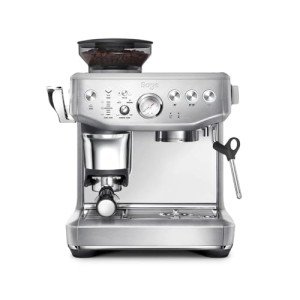Home Use Espresso Machines: A Comprehensive Guide
Espresso machines have actually become a staple in many homes as coffee enthusiasts look for to duplicate café-quality brews in the comfort of their cooking areas. The increase in appeal has actually caused a diverse market filled with different models, features, and rates. This short article aims to supply an informative summary of home use espresso machines, helping readers browse their options successfully.
Understanding Espresso Machines
Espresso machines work by requiring warm water through finely-ground coffee under high pressure, resulting in a focused coffee drink known as espresso. There are several types of espresso machines classified based upon their developing approaches and level of automation. The most common types consist of:
- Manual Espresso Machines: These need the user to control the pressure and water circulation, enabling a more hands-on coffee-making experience.
- Semi-Automatic Espresso Machines: These use automatic control over water pressure, while the user by hand grinds and tamps the coffee.
- Automatic Espresso Machines: With the push of a button, these machines immediately manage the circulation of water, making it easier to brew espresso with consistent results.
- Super-Automatic Espresso Machines: These all-in-one machines deal with grinding, tampering, developing, and even milk frothing, making them perfect for users trying to find convenience.
- Capsule or Pod Machines: These use pre-packaged coffee pods to produce espresso with very little effort, but they limit choice in brewing strategies and flavors.
Table: Comparison of Espresso Machine Types
| Type | Control Level | Ease of Use | Cleaning Level | Ideal For |
|---|---|---|---|---|
| Manual | User-controlled | Moderate | High | Coffee perfectionists |
| Semi-Automatic | Partial automation | Moderate | Moderate | Home baristas |
| Automatic | Totally automated | Easy | Low | Hectic people |
| Super-Automatic | Totally automated | Very simple | Extremely low | Convenience hunters |
| Capsule/Pod | Fully automated | Very easy | Really low | Casual drinkers |
Key Features to Consider
When picking a home use espresso machine, it's important to consider numerous functions that can considerably impact the quality of espresso and user experience.
- Pressure: Look for machines that supply at least 9 bars of pressure, as this is thought about ideal for brewing espresso.
- Boiler Systems: Single vs. dual boiler systems identify temperature stability and the ability to brew espresso and steam milk at the same time.
- Grinder: Integrated mills allow for newly ground coffee, which enhances flavor. Think about machines with adjustable grind settings.
- Milk Frother: For those who enjoy coffees and lattes, an integrated steam wand or automatic frother is crucial.
- Size and Design: Consider your kitchen area and visual preferences. Machines can be found in various sizes, from compact to big setups.
- Price: Home espresso machines can range from a few hundred to several thousand dollars, so it's vital to establish a budget before exploring choices.
Pros and Cons of Home Use Espresso Machines
| Pros | Cons |
|---|---|
| Convenience of brewing coffee at home | Preliminary financial investment can be high |
| Quality of espresso is typically remarkable | Requires some skill, particularly with manual machines |
| Ability to try out flavors | Upkeep and cleaning can be labor-intensive |
| Can save cash in the long run | Not all machines will suit every coffee choice |
Maintenance and Cleaning Tips
Keeping an espresso machine is vital for extending its life and making sure consistent brew quality. Here are some useful ideas:
- Regular Descaling: Minerals from water can build up in the machine. Descale every 1-3 months, depending on water solidity.
- Daily Cleaning: Rinse portafilters, baskets, and steam wands after each use to prevent coffee oils from building residue.
- Use Filtered Water: This can help minimize mineral buildup and enhance the taste of coffee.
- Replace Gaskets and Seals: These components may wear out in time and ought to be changed to maintain pressure and performance.
- Check out the Manual: Each machine has particular care instructions; following these will guarantee longevity.
Frequently Asked Questions About Home Use Espresso Machines
Q1: What is the very best budget espresso machine?The best budget espresso machine often depends upon individual requirements, however designs like the DeLonghi EC155 or the Breville Bambino are popular amongst users for providing great value. Q2: How long do home espresso machines normally last?With proper upkeep, home espresso machines can last anywhere from 5 to 15 years, depending upon the quality of the machine and frequency of use. Click That Link : Can I make cappuccinos and lattes with any espresso machine?While most espresso machines can make coffees and lattes, having a reliable
steam wand or frother is vital for accomplishing the right milk texture.
Q4: Are super-automatic machines worth the investment?For those who focus on convenience and quick brewing, super-automatic machines can be worth the investment, though they might do not have some customizability in brew strength and flavor. Q5: What kinds of coffee beans are best for espresso?While Read More Listed here plays a function, beans identified as" espresso "blends are generally roasted darker, creating abundant tastes and a creamy texture when brewed.
Investing in a home espresso machine can transform the everyday coffee routine into something unique, raising home brews to café quality. By understanding the different kinds of machines, crucial features to think about, upkeep needs, and weighing the
advantages and disadvantages, consumers can make informed decisions that suit their private preferences. As the espresso culture continues to grow, no matter the choice, every brew can be a scrumptious experience waiting to be enjoyed.

